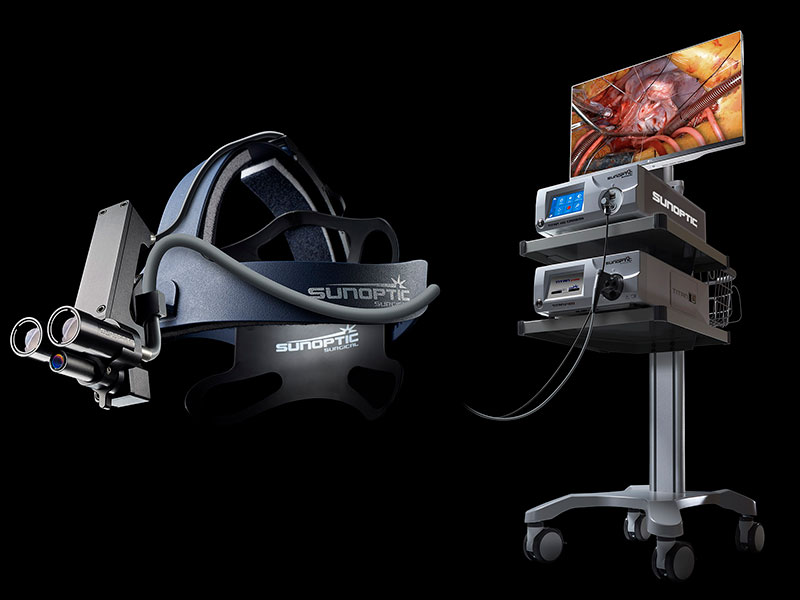Information Technology Assistant: A Tech Support Guide
Information Technology Assistants are the unsung heroes of the digital world, bridging the gap between technology and everyday users. They play a crucial role in ensuring smooth operations within organizations, […]

Information Technology Assistants are the unsung heroes of the digital world, bridging the gap between technology and everyday users. They play a crucial role in ensuring smooth operations within organizations, providing vital support to colleagues and clients alike. From troubleshooting computer issues to setting up network connections, these individuals are the first line of defense in keeping businesses running smoothly.
Their responsibilities are diverse, encompassing a range of tasks that require a blend of technical expertise and interpersonal skills. Information Technology Assistants need to possess a solid understanding of computer hardware and software, along with the ability to communicate effectively with individuals of varying technical backgrounds.
Key Responsibilities and Tasks

Information Technology Assistants play a vital role in ensuring the smooth operation of an organization’s technology infrastructure. They act as the first line of support for employees experiencing technical difficulties and are responsible for a wide range of tasks related to computer systems, software, and network connectivity.
Daily Tasks
Information Technology Assistants perform a variety of tasks on a daily basis to maintain the organization’s technology infrastructure. These tasks may include:
- Responding to user requests for technical assistance, including troubleshooting software issues, resetting passwords, and configuring devices.
- Installing and configuring software on computers and other devices.
- Maintaining and updating computer hardware, including printers, scanners, and network equipment.
- Documenting technical issues and solutions to improve efficiency and knowledge sharing.
- Assisting with the implementation and maintenance of new technologies.
- Providing training and support to employees on new software or hardware.
- Maintaining network security and implementing measures to prevent unauthorized access.
- Monitoring system performance and identifying potential issues.
Troubleshooting and Resolving Technical Issues
Troubleshooting and resolving technical issues are essential responsibilities of an Information Technology Assistant. These tasks require strong problem-solving skills and a deep understanding of computer systems and software. They involve identifying the root cause of the issue, researching solutions, and implementing them to restore functionality.
- Information Technology Assistants often use a combination of technical knowledge, troubleshooting tools, and communication skills to resolve issues effectively.
- They must be able to explain complex technical concepts to users in a clear and concise manner.
- They may also need to escalate issues to senior IT staff if they are unable to resolve them independently.
Contributing to the Smooth Operation of Technology Infrastructure
Information Technology Assistants play a crucial role in ensuring the smooth operation of an organization’s technology infrastructure. Their efforts contribute to:
- Increased productivity and efficiency by providing prompt and effective technical support.
- Reduced downtime and disruption by resolving issues quickly and efficiently.
- Improved security by implementing and maintaining security measures.
- Enhanced user experience by providing training and support on new technologies.
Technical Skills and Knowledge
An Information Technology Assistant needs a strong foundation in technical skills and knowledge to effectively support users and manage IT systems. This section will explore the essential technical skills, including computer hardware and software understanding, common operating systems, and applications used in the field.
Understanding Computer Hardware and Software
Computer hardware and software are the fundamental building blocks of any IT system. Understanding their interaction is crucial for troubleshooting issues, configuring systems, and providing efficient technical support. Hardware encompasses the physical components of a computer, such as the motherboard, CPU, RAM, storage devices, and peripherals. Software, on the other hand, refers to the programs and instructions that control the hardware and perform specific tasks.
Common Operating Systems and Applications, Information technology assistant
Operating systems (OS) are software programs that manage the hardware and software resources of a computer. They provide a user interface for interacting with the system and enable the execution of applications. Common operating systems include Windows, macOS, Linux, and Android. Applications are software programs designed for specific purposes, such as word processing, spreadsheets, web browsing, and email.
Essential Software and Hardware Skills
The table below illustrates essential software skills and hardware knowledge for an Information Technology Assistant:
| Software Skills | Hardware Knowledge |
|---|---|
| Microsoft Office Suite (Word, Excel, PowerPoint) | Troubleshooting printers, scanners, and other peripherals |
| Network management tools (e.g., Wireshark, SolarWinds) | Setting up network connections, configuring routers, and switches |
| Remote desktop software (e.g., TeamViewer, AnyDesk) | Installing and configuring hardware components (e.g., RAM, hard drives) |
| Antivirus and security software | Understanding basic hardware components (e.g., CPU, RAM, storage) |
| Cloud storage and collaboration tools (e.g., Google Drive, Dropbox) | Troubleshooting common hardware issues (e.g., blue screen of death, slow performance) |
Communication and Soft Skills: Information Technology Assistant
In the fast-paced world of Information Technology, effective communication is not just a plus, it’s a necessity. An Information Technology Assistant needs to convey technical information clearly and concisely to both technical and non-technical audiences. This role involves working with diverse individuals, from colleagues to clients, requiring strong interpersonal skills to build rapport and foster productive relationships.
Importance of Effective Communication
Effective communication is crucial for an Information Technology Assistant as it ensures seamless information flow, prevents misunderstandings, and facilitates collaboration. When an assistant can clearly explain technical issues, troubleshoot problems, and provide updates on project progress, it fosters trust and confidence in their abilities. This, in turn, strengthens relationships with colleagues and clients, leading to more efficient workflows and positive outcomes.
Essential Soft Skills
Beyond technical skills, soft skills are equally vital for an Information Technology Assistant. These skills enhance interpersonal interactions, improve problem-solving abilities, and contribute to a positive work environment.
Specific Soft Skills
- Patience: Information Technology Assistants often deal with complex issues that require patience and understanding. Troubleshooting technical problems can be time-consuming and require a calm demeanor to guide users through the process.
- Problem-Solving: Technical issues can arise unexpectedly, requiring an assistant to think critically, analyze the situation, and devise solutions. Strong problem-solving skills allow for efficient resolution of issues, minimizing downtime and maximizing productivity.
- Adaptability: The field of Information Technology is constantly evolving, requiring assistants to adapt to new technologies and learn quickly. Adaptability ensures they can stay ahead of the curve, efficiently support evolving systems, and provide relevant assistance.
- Teamwork: Collaboration is essential in Information Technology. Assistants work closely with colleagues to resolve issues, implement solutions, and ensure seamless operation of systems. Effective teamwork fosters a supportive environment and facilitates efficient problem-solving.
- Active Listening: When assisting users, active listening is crucial to understanding their needs and providing tailored solutions. It involves paying close attention to the user’s concerns, asking clarifying questions, and summarizing their issues to ensure accurate comprehension.
Essential Communication and Soft Skills
| Communication Skills | Soft Skills |
|---|---|
| Clear and Concise Communication | Patience |
| Active Listening | Problem-Solving |
| Effective Written Communication | Adaptability |
| Public Speaking (for presentations) | Teamwork |
| Conflict Resolution | Active Listening |
Career Paths and Advancement Opportunities
An Information Technology Assistant role provides a solid foundation for a fulfilling career in the ever-evolving field of Information Technology. This entry-level position serves as a springboard to various specialized roles, offering opportunities for professional growth and advancement.
Potential Career Paths
The experience gained as an Information Technology Assistant can lead to diverse career paths within the IT field. Here are some examples:
- IT Support Specialist: IT Support Specialists provide technical assistance to users, troubleshoot computer problems, and ensure the smooth operation of IT systems. This role often involves working directly with end-users, resolving software and hardware issues, and providing training.
- Network Administrator: Network Administrators manage and maintain computer networks, ensuring connectivity, security, and performance. They configure network devices, troubleshoot network issues, and implement security measures.
- Systems Administrator: Systems Administrators manage and maintain computer systems, including servers, operating systems, and databases. They install, configure, and monitor systems, ensuring their stability and reliability.
- Database Administrator: Database Administrators design, implement, and manage databases, ensuring data integrity, security, and accessibility. They work with data structures, query languages, and database management systems.
- Cybersecurity Analyst: Cybersecurity Analysts protect computer systems and networks from cyber threats. They identify vulnerabilities, implement security measures, and respond to security incidents.
Certifications and Training Programs
Pursuing relevant certifications and training programs can significantly enhance career prospects. These credentials demonstrate specialized knowledge and skills, making individuals more competitive in the job market. Here are some popular certifications:
- CompTIA A+: This certification validates foundational knowledge in computer hardware and software, making it suitable for entry-level IT professionals. It covers troubleshooting, installation, and configuration of computer systems.
- CompTIA Network+: This certification focuses on networking fundamentals, including network protocols, topologies, and security. It is beneficial for aspiring network administrators.
- Microsoft Certified: Azure Fundamentals: This certification validates basic knowledge of cloud computing concepts and Microsoft Azure services. It is valuable for individuals interested in cloud computing careers.
- Cisco Certified Network Associate (CCNA): This certification is widely recognized in the networking industry and validates knowledge of Cisco networking technologies and best practices.
Examples of Successful Individuals
Many successful IT professionals have started their careers as Information Technology Assistants. For instance, [Insert Name] began their career as an Information Technology Assistant at [Company Name], where they gained valuable experience in troubleshooting and providing technical support. Through hard work, dedication, and continuous learning, they progressed to become a [Current Position], showcasing the potential for career advancement within the IT field. [Insert Name] is a testament to the fact that starting as an Information Technology Assistant can be a stepping stone to a fulfilling and successful IT career.
The Impact of Technology on the Role
The field of Information Technology (IT) is constantly evolving, and advancements in technology are significantly shaping the responsibilities of an Information Technology Assistant. The emergence of new technologies is creating new challenges and opportunities for IT Assistants, requiring them to adapt and acquire new skills to remain relevant in the dynamic IT landscape.
Emerging Technologies and their Impact
The rapid evolution of technology is introducing new tools and processes that are transforming the IT landscape. This evolution presents both challenges and opportunities for Information Technology Assistants.
| Emerging Technology | Impact on Information Technology Assistant Role |
|---|---|
| Artificial Intelligence (AI) | AI is automating repetitive tasks, freeing up IT Assistants to focus on more complex problem-solving and strategic initiatives. AI-powered tools can assist with tasks such as incident ticketing, system monitoring, and user support, streamlining workflows and enhancing efficiency. |
| Cloud Computing | Cloud computing has significantly shifted the IT infrastructure landscape, with organizations increasingly adopting cloud-based services. This has led to a rise in demand for IT Assistants skilled in cloud technologies, such as AWS, Azure, and Google Cloud Platform, to manage and support cloud environments. |
| Cybersecurity | The increasing sophistication of cyber threats has heightened the need for cybersecurity professionals. IT Assistants with cybersecurity skills are in high demand to implement security measures, respond to incidents, and ensure data protection. |
| Internet of Things (IoT) | The proliferation of IoT devices is generating massive amounts of data, creating opportunities for IT Assistants with expertise in data management and analysis. IT Assistants can play a crucial role in configuring, managing, and troubleshooting IoT devices, ensuring seamless integration and operation. |
| Big Data and Analytics | Big data analytics is becoming increasingly important for organizations to gain insights from data. IT Assistants with data analysis skills can support the collection, processing, and analysis of data, enabling informed decision-making. |
Final Conclusion
The role of an Information Technology Assistant is evolving rapidly, driven by advancements in technology and the increasing reliance on digital tools. As new technologies emerge, so too do the challenges and opportunities for those in this field. By staying up-to-date on the latest trends and continuously developing their skills, Information Technology Assistants can carve out successful careers in a dynamic and ever-changing industry.
An information technology assistant might help a company manage its inventory, including specialized equipment like c.a. technologies spray guns. These spray guns are essential for many industries, and an IT assistant could help track their maintenance schedules and ensure they are always in good working order.
This ensures that the company can continue to operate efficiently and meet its production goals.








